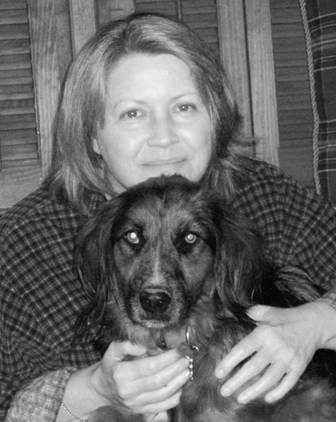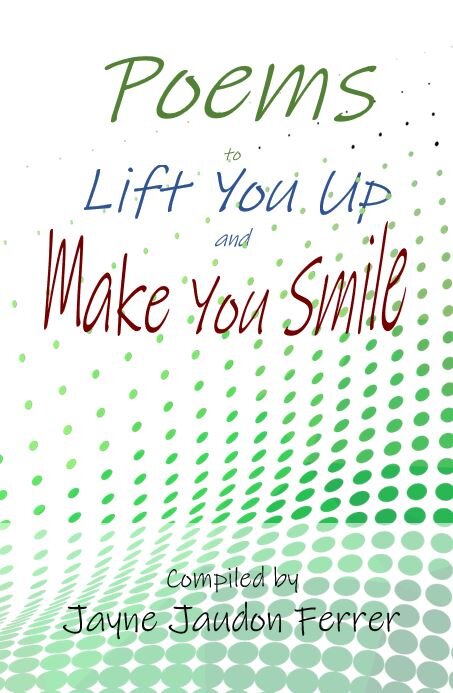Poet Profile: Sherry Hughes Beasley

Sherry Hughes Beasley may write about women (the focus of all three of her chapbooks), but her heart belongs to animals. "I would rescue every abused and neglected animal in the world if I could," Sherry admits. That tender heart results in powerful, moving poetry: Sherry's many awards include the Edgar Allen Poe Memorial in 2009, and she was a finalist for the Virginia Prize for Poetry in 1984. A new grandmother as of Christmas Eve 2010, Sherry and her husband--and several dogs, of course--live in southwest Virginia in a house they designed themselves. In addition to writing poetry, Sherry enjoys making jewelry, perfume, and soap--and in her spare time, she's taking a writing course from Stanford University. Learn more about Sherry at http://home.earthlink.net/~sherrybeasley/.
Why poetry?
Poetry has always intrigued me. I loved nursery rhymes when I was little (I still love them), and something about a few lines, all to themselves and which tell a story, was a really cool thing. When I began to write poetry in second grade, it was blissful, like an altered state of consciousness. I feel that way when I read poetry and when I write it. I lose myself in it. Prose has never done that for me.
Do you have favorite poets or poems?
Oh yes, some of my favorite poems are "No Swan So Fine" and "A Carriage From Sweden" by Marianne Moore; "First Death in Nova Scotia" by Elizabeth Bishop; all of the poems in The Wild Iris by Louise Gluck; "Elegy for Jane" and "Child on Top of a Greenhouse" by Theodore Roethke; and my absolute favorite, "Mourning Picture," by Adrienne Rich. I also love the work of Mary Oliver, Sharon Olds, Lucille Clifton, e.e. cummings, Donald Hall, Jane Hirshfield, Jane Kenyon, and Deborah Pope. And, of course, many more.
What's the most interesting "poetry pilgrimage" you've ever made?
I don't think I've ever made a poetry pilgrimage. I'm pretty much a home body and almost never leave my house.
In the great scheme of things, where does poetry fit in?
I consider poetry to be the highest and finest art of them all.
Describe your writing routine and/or process.
I need large blocks of time to write poetry. I generally study, read, and write poetry from ten o'clock in the morning to two in the afternoon, give or take a half-hour. I almost always write poems in long-hand, then type them into a computer, although I have composed on a computer, but I really don't like doing that.
What's the most absurd thing you've ever written a poem about?
I wrote a humorous poem once about being glad my husband was not dead yet, because he was handy at taking out the trash, etc. I laughed out loud while I was writing it, but I don't think I would ever submit it anywhere. I'm telling you, though, it was funny.
When/where are you most inspired?
I'm inspired often and almost anything can spur an emotion that turns into a poem. I can feel the poem padding around inside me, and I have to write it down.
Which classic poet would you most like to meet, and why?
William Shakespeare, of course, and Emily Dickinson because I am also reclusive. Definitely Alfred, Lord Tennyson, because his poems sound so breathtakingly beautiful.
Is there some consistent trademark or characteristic that you've discovered in your poetry?
I love to write images. I also love to write about the past, especially women's lives and experiences, women's struggles and perspectives. I like to write romantic poems, leaving out sentimentality.
Anything else you'd like to share--advice, anecdotes, forthcoming adventure, etc?
I write when I feel compelled to write, but everyone is different; some people write every day, I just can't do that. Persevere in submitting your work for publication, because only perseverance will reap any rewards.
Many thanks to Sherry for her time and reflection on these questions. You're invited to read some of her wonderful poems in the YDP archives.
Â
Â
How did you come to be a poet?
When I was twenty-four, my writing changed from rhymed, metered verse to something more free. I had been seeing poems in the pages of different magazines, including Ms magazine, and I wondered if I could get my work published in something like that. I decided that first I needed some help and I called some English professors at different universities. One professor in particular, William Harmon at UNC-Chapel Hill, helped the most. He also knew the editor of Carolina Quarterly and showed that guy some of my poems. The editor decided to publish one of them and I guess that gave me a little break. I was issued a $5 check for that poem, and I still have that check. |
|


